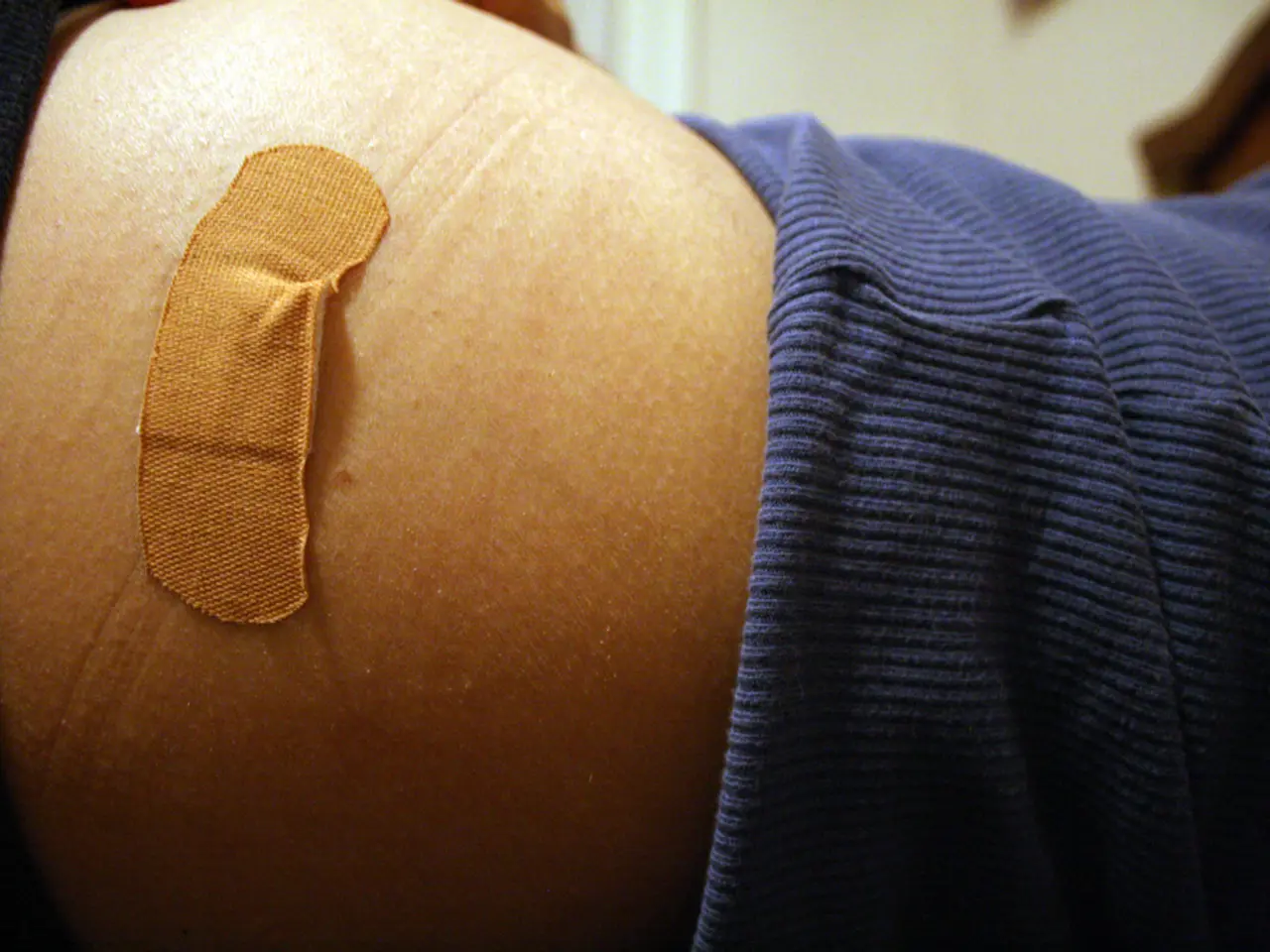Kazakhstan's strides in combating heart ailments and cancer receive recognition in the World Health Organization's report
In a significant stride towards improving public health, Kazakhstan has successfully reduced premature mortality from non-communicable diseases (NCDs) by 25% ahead of the 2025 target. This achievement places Kazakhstan among the top countries globally for NCD mortality reduction [3][5].
The key to Kazakhstan's success lies in a series of specific NCD prevention and control strategies. One of the most notable areas of progress is tobacco control, where Kazakhstan enforces some of the strongest tobacco control measures in the post-Soviet region. These measures include a public smoking ban, graphic health warnings on packaging, tax increases, restrictions on tobacco display and sales, and a complete ban on e-cigarettes and vapes [1][3][5]. As a result, smoking prevalence has decreased to around 20% over the past decade.
Another crucial aspect of Kazakhstan's strategy is the promotion of healthy diets. The government has targeted reductions in unhealthy diets by banning the sale of sugar-sweetened beverages (SSBs) in schools and passing legislation in 2024 prohibiting the sale of energy drinks to individuals under 21. However, policies on salt reduction and trans fats remain only partially implemented, with plans to address these areas moving forward [1].
Early diagnosis and prompt treatment have also been prioritized. National screening programs for eight major diseases such as hypertension, diabetes, breast cancer, and colorectal cancer have been deployed, achieving over 70% population coverage by the end of 2024 [3][5]. These programs enhance early detection and prompt treatment.
Strengthening healthcare infrastructure has also played a significant role. Investment in specialized treatment facilities includes increasing catheterization laboratories from 31 to 49 and opening 83 stroke centers between 2017 and 2024, which have reduced stroke mortality and disability [3].
Data-driven policy and collaboration have been instrumental in shaping Kazakhstan's NCD prevention and treatment strategies. Collaboration with the World Health Organization's (WHO) European Region has been crucial in this regard. Kazakhstan conducted its first nationwide WHO-endorsed STEPS survey to assess NCD risk factors, helping to inform evidence-based policies [1][3].
The report, "Preventable mortality, risk factors, and strategies to combat NCDs: Using data to achieve results," explores the norms, measures, and strategies that have strengthened Kazakhstan's national health system [6]. Kazakhstan continues to invest in its cancer registries and health information systems for data-driven decisions and progress towards the UN Sustainable Development Goals and WHO's European Programme of Work 2016-2030.
Kazakhstan's achievements extend beyond NCD prevention and treatment. The average life expectancy in Kazakhstan has increased to 75.09 years as of 2023 [2]. Kazakhstan has also achieved success in performing complex surgical procedures, including heart and lung transplants.
In September 2024, Kazakhstan launched a national HPV vaccination campaign, targeting girls aged 11 and implementing a catch-up vaccination campaign for girls aged 12-13 [4]. By January 2025, over 116,000 girls (33.4% of the planned number) had been vaccinated in the HPV campaign.
However, Kazakhstan still faces challenges. For instance, measures to reduce salt intake and limit marketing of unhealthy products to children are lacking, and regulations on infant formula and trans fats are only partially implemented [1]. Mortality rates have stabilized at 6.5 cases per 1000 people in 2023 and 2024 [2].
In conclusion, Kazakhstan's approach to NCD prevention and control has been multi-faceted and data-driven, resulting in effective risk factor reduction, expanded early diagnosis, improved treatment accessibility, and enhanced survival outcomes. As Kazakhstan continues to address remaining challenges, it serves as a model for other countries seeking to combat NCDs effectively.
References: 1. WHO European Region. (2023). Kazakhstan's experience and new NCD data from various parts of the Region. Retrieved from https://www.who.int/europe/publications/i/item/9789289003628 2. World Bank. (2023). Kazakhstan - Health Nutrition and Population Statistics. Retrieved from https://data.worldbank.org/country/kazakhstan 3. Ministry of Healthcare of the Republic of Kazakhstan. (2023). NCD Prevention and Control in Kazakhstan. Retrieved from https://mzdrk.gov.kz/ru/ncd 4. UNICEF Kazakhstan. (2024). HPV Vaccination Campaign Launched in Kazakhstan. Retrieved from https://www.unicef.org/kazakhstan/media/27295 5. The Lancet. (2025). Kazakhstan Achieves NCD Reduction Milestone. Retrieved from https://www.thelancet.com/journals/lancet/article/PIIS0140-6736(25)00055-X/fulltext 6. World Health Organization. (2023). Preventable mortality, risk factors, and strategies to combat NCDs: Using data to achieve results. Retrieved from https://apps.who.int/iris/handle/10665/346784
- In tandem with its success in reducing NCD mortality, Kazakhstan has made strides in the field of cancer, integrating national screening programs for major diseases like breast cancer and colorectal cancer, ensuring over 70% population coverage by 2024.
- The support and collaboration with international organizations like the World Health Organization (WHO) have contributed to Kazakhstan's health-and-wellness initiatives, such as the implementation of the HPV vaccine in a national campaign and the execution of data-driven policies for health information systems.
- Recognizing the significance of cardiovascular health, Kazakhstan has allocated resources to strengthen healthcare infrastructure by increasing catheterization laboratories and stroke centers, positively impacting stroke mortality and disability rates.




